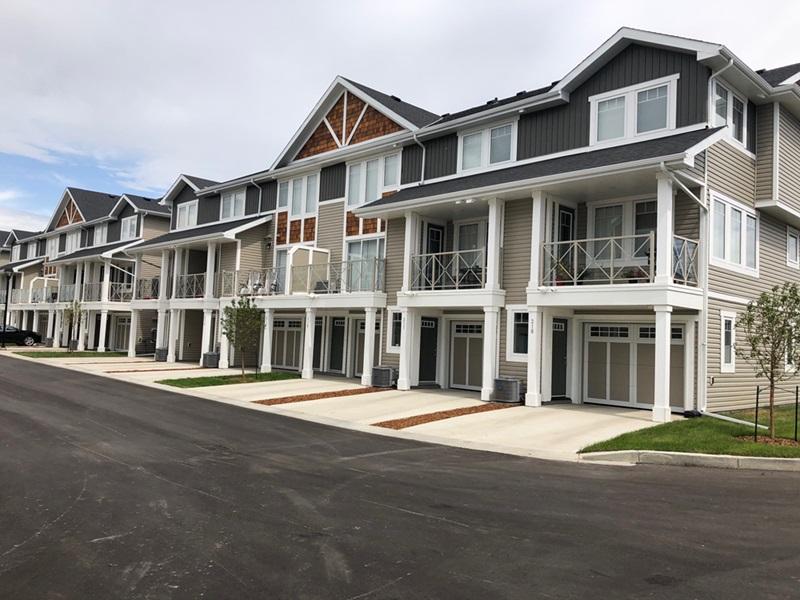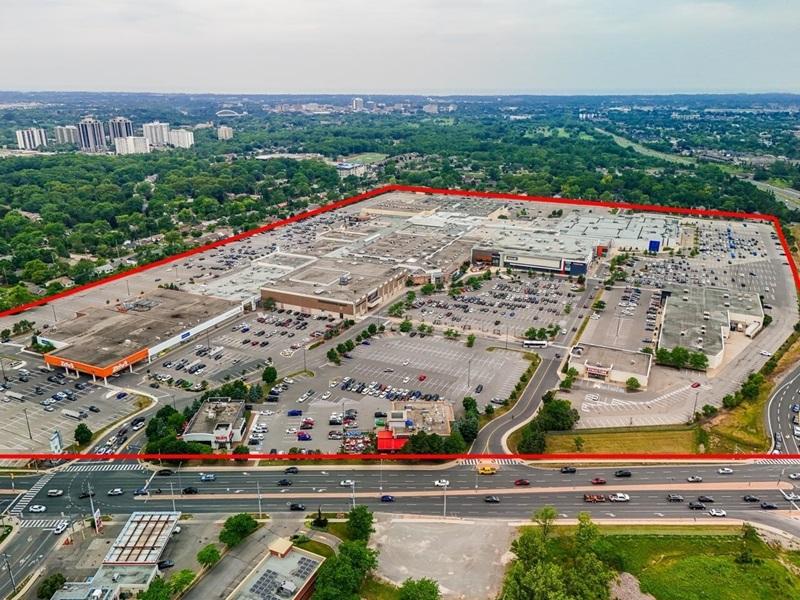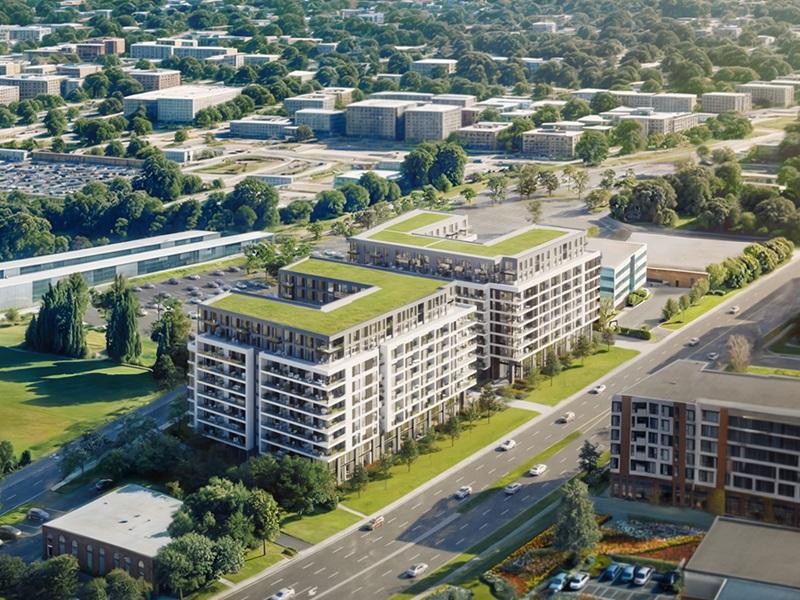
The Fama Business Park in Surrey. (Courtesy CanFirst)
This is a very busy time for CanFirst Capital Management. The firm has already set a record for acquisitions in 2019, continues to seek investments for its first open-ended fund, and is preparing to launch its seventh closed-end fund.
The Toronto-based private equity real estate investment company was launched by managing directors Paul Braun and Allan Perez in 2002. Since then it has raised $550 million, about 70 per cent of it from institutional investors and the rest from high-net-worth investors.
“We started primarily by buying property in the GTA and we evolved into national acquisitors,” Braun told RENX. “We’ve acquired property in Montreal, Ottawa, the GTA, Kitchener, Waterloo, Cambridge, Calgary and Vancouver.”
2019 has been a busy year.
CanFirst has transacted about 12 million square feet of space, most of it industrial, but also some suburban office. Warehousing for e-commerce is growing in importance in the company’s portfolio.
CanFirst’s investment strategy
Four of CanFirst’s six closed-end funds have been liquidated. Braun said the average return on those was just over 16 per cent per year.
“Our investment strategy in closed-end funds is to find opportunities in growing markets where we believe there are value-add opportunities, whether that’s through significant vacancies, repositioning a property or below-market rents,” said Braun, a founding shareholder of V&A Properties and former senior executive with Cadillac Fairview and Dundee Realty Corporation.
“I don’t think we want to go into too many more markets. We’re just focusing on major Canadian cities and trying to create clusters in those cities, so that there’s critical mass in each of the communities that we’re investing.”
CanFirst’s modus operandi has primarily been acquiring value-add industrial properties, aggregating a portfolio and then selling the properties over time. Braun said it used to be easier to sell entire portfolios, but in the past few years they’ve found a larger appetite for one-off divestments.
Major CanFirst acquisitions
One of CanFirst’s signature holdings is Factory Square Campus, located in the Idea Quarter in Waterloo. CanFirst acquired its three properties, totalling 530,000 square feet and formerly part of the BlackBerry portfolio, in September 2017 from Spear Street Capital.
CanFirst has made three major acquisitions worth $164 million so far in 2019 on behalf of CanFirst Industrial Realty Fund VI. That total is a record for the company.
The company acquired a four-property industrial portfolio in Burlington, Scarborough and Markham in March. The 466,904-square-foot portfolio consists of single- and multi-tenant industrial properties offering multiple value-add opportunities.
As part of the same cluster of acquisitions, in June it bought a property in Etobicoke comprised of three industrial buildings totalling 113,178 square feet.
The company acquired a 288,000-square-foot, multi-tenant industrial building at the Walkers Line/Queen Elizabeth Way interchange in Burlington around the same time.
CanFirst’s most recent acquisition, in September, was an eight-building industrial complex in Surrey’s Fama Business Park totaling 315,128 square feet. It cost just over $66 million and is fully leased to a mix of local and national tenants.
Partner Raviv Israel told RENX CanFirst had been looking at industrial properties in the Vancouver area for a while.
It liked this site because of: the scarcity of available large properties in the market; an industrial vacancy rate of less than one per cent in Surrey; its price per square foot compared to nearby properties; and a location that enables tenants to service customers in B.C., Alberta and the United States.
“This is one of the larger transactions in Vancouver because properties with value-add opportunities just don’t trade there,” partner and portfolio manager Mark Braun added. “It’s closely held with a lot of private investors there that usually get at these opportunities first. This is one of the few times that a portfolio of scale came to market.”
CanFirst’s fund activity
CanFirst doesn’t currently have transactions under contract, nor has it had a formal pipeline or relationships with other partners or developers. However, Mark Braun added the company is open to new opportunities and “underwriting multiple deals right now and constantly putting out offers.”
CanFirst invested the bulk of its funds in CanFirst Industrial Realty Fund VI with the acquisition of the Surrey property. It is now in the process of putting together a funding memorandum for its seventh closed-end fund.
“We have some early interest from pension funds,” said Paul Braun.
Spurred by private investors who wanted to keep properties for a longer period, CanFirst started an open-end fund a year ago. It is focused on higher-quality core and core-plus properties.
“In core and core-plus properties, you don’t have to invest as much capital in the individual buildings,” said Paul Braun. “That means we’re not going back to our investors all the time to call for money on buildings that we’ve acquired in the open-end fund.”
The core and core-plus investments generally aren’t value-add plays. While the closed-end funds have been focused on industrial and suburban office properties, the open-end income fund is also being used to acquire a variety of office and retail buildings.







